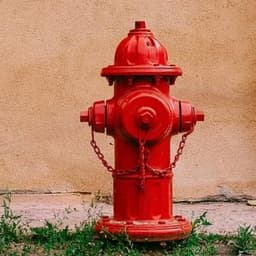Emergency Plan Checklist
Table of Contents
Research
Find out which disasters could occur in your area.
Ask how to prepare for each disaster.
Ask how you would be warned of an emergency.
Learn your community's evacuation routes.
Ask about special assistance for elderly or disabled persons.
Ask your workplace about emergency plans.
Learn about emergency plans for your children?s school or day care center.
Create an Emergency Plan
Meet with household members to discuss the dangers of fire, severe weather, earthquakes and other emergencies.
Explain how to respond to emergencies.
Find the safe spots in your home for each type of disaster.
Discuss what to do about power outages and personal injuries.
Draw a floor plan of your home and mark two escape routes from each room.
Show family members where to shut off the water, power, and gas and have placed the tools at each location.
Post emergency telephone numbers near telephones.
Know the location of the nearest police, fire station, and hospital.
Your children know how to get help from neighbors and 911.
Instruct household members to turn on the radio for emergency information.
Pick one out-of-state and one local friend or relative for family members to call if separated during a disaster.
Teach children your out-of-state contact's phone numbers.
Pick two emergency meeting places: A place near your home in case of a fire and a place outside your neighborhood in case you cannot return home after a disaster.
Take a basic first aid and CPR class.
Keep family records in a water and fire-proof container.
Items to include in a Disaster Supplies Kit
Drinking water (3-6 day supply).
Food (3-6 day supply, requires no cooking, high energy).
Manual can opener
Flashlight (check batteries regularly).
Portable radio (check batteries regularly).
Spare batteries.
First aid kit and prescription medications.
A change of clothing, rain gear and sturdy shoes.
Blankets or sleeping bags.
Light sticks (safer than candles).
An extra pair of glasses.
Credit cards and cash.
An extra set of car keys.
A list of family physicians.
A list of important family information; the style and serial number of medical devices such as pacemakers.
Special items for infants, elderly or disabled family members.
Plan Ahead
Look around your house for potential hazards.
Secure heavy pictures and mirrors onto walls away from beds.
Place heavy objects on lower shelves.
Strap water heaters to wall studs.
Keep chimneys and vents free from dirt and debris.
Store flammable products away from potential heat sources.
Download or Print this Emergency Plan Checklist
Get a printable version of this checklist in your preferred format: PDF, Word, Excel, or print directly from your browser.
Who it's for
This Emergency Plan Checklist is for teams that want consistent execution, less rework, and clear ownership.
- Standardize quality - run the same Emergency Plan steps every time, regardless of who executes
- Save time - reuse a proven Emergency Plan workflow instead of rebuilding processes from scratch
- Improve accountability - assign owners and see what's done vs. what's pending
- Onboard faster - use the Emergency Plan checklist as the SOP and training guide
- Coordinate across roles - handoffs are clear and everyone works from the same source of truth
How to use it
How to use this Emergency Plan Checklist:
- Start by saving it - save as a Template if you'll reuse it, or as a Checklist if it's a one-off project.
- Customize it once for your workflow - remove what doesn't apply and add your team-specific steps.
- Assign ownership and execute - set owners/due dates where needed and track completion as work happens.
- Reuse without rebuilding - when Emergency Plan comes up again, start from your saved version and run it with clear ownership.

